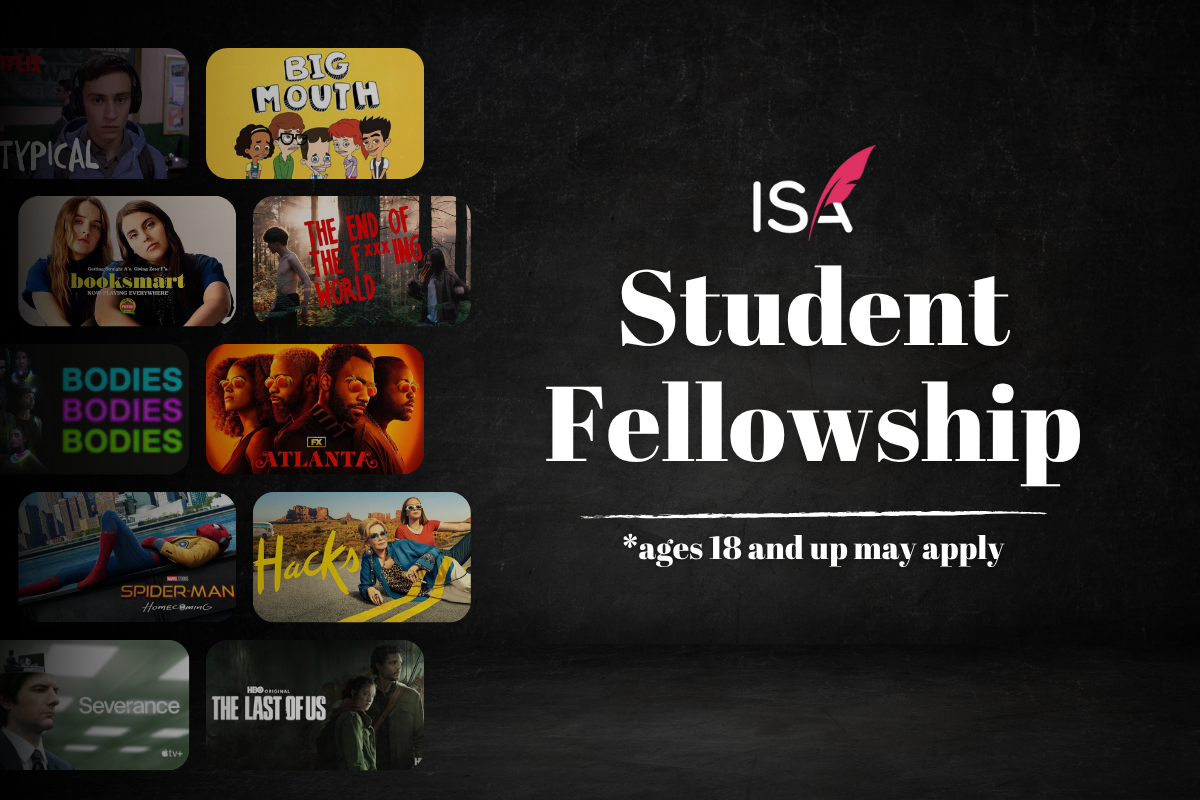PRIMETIME: Getting Your First Job In Hollywood
Agencies are the best starting place for anyone launching a Hollywood career… even if you don’t want to be an agent. Many networks, studios, and producers won’t even hire assistants who don’t already have agency experience.
I talk a lot in this blog about the importance of getting a job in the industry… not only to learn and understand how it works, but to build relationships with working professionals. So today's question comes from Luke, who writes…
In your recent article you mentioned, "Get a job in the industry, even a low-level job as an assistant, intern, PA, or runner" as a great way to build your professional contacts. It's a great idea but work is scarce right now. Do you have any insightful tips on pursuing any of these entry and low-level jobs?
Getting a job in Hollywood is all about connections and relationships. Rarely will you land a Hollywood job solely on the strength of your resume or past experience. Yet, as Luke points out, even positioning yourself to make those connections can be tough. So here are some great ways to break in and get your career ball rolling…
1. WORK AT AN AGENCY – There's a reason people refer to working at an agency as "grad school for the industry." The big agencies, especially in television, are the hub of all commerce; there's not a sale or deal that happens without going through one of the major agencies. As a result, agencies have their fingers on the pulse of everything happening in Hollywood as it happens… who's buying, what's selling, which shows are getting picked up, who's getting hired or fired. Nothing happens in Hollywood without agencies knowing about it… often even before the other people involved!
Thus, agencies are often the BEST STARTING PLACE for anyone launching a Hollywood career… even if you don't want to be an agent.
In fact, many networks, studios, and producers won't even hire assistants who don'talreadyhave agency experience!
…Which is why, if you walk into the belly of one of Hollywood's top agencies, you'll find law school graduates, MBA's, undergraduate interns… people of all levels starting their careers. (I know a guy who started his own business, built it into a multi-million-dollar, international company... of which he was the CEO... then decided he wanted to switch careers, become an agent. He got a job at one of Hollywood's biggest agencies... in their mailroom. Now, his knowledge and experience helped him excel faster than the other low-level employees, and he's now a full-fledged agent, but the point is: everyone starts in the mailroom.)
Working at an agency, you usually begin in the mailroom, sorting and delivering incoming and outgoing mail. Once you've proven your mettle, you'll become a "floater," or substitute assistant, "floating" from one agent's desk to another, covering for assistants who are out sick, on vacation, etc. As you do this, you're hopefully forming good relationships with agents throughout the agency, especially in areas where you hope to work. (If you want to be a screenwriter, you're forming relationships with MP lit agents; if you want to be a reality producer, you're meeting alternative agents; if you want to be a TV casting director, you're meeting TV talent agents, etc.) Eventually, you land on an agent's desk permanently, working strictly as that agent's assistant until you're ready to move on… either within the company, or to an external job.
This whole time, you're in the midst of a massive swirl of information. You'll read countless scripts—and learn to analyze them. You'll know who all the major players are (and meet many of them, as well as their assistants, personally or on the phone). You'll understand the ins and outs of negotiating, giving (and receiving) notes, pitching a new show idea. You will learn more, and meet more people, faster than you ever thought possible.
You'll also build your Rolodex… not only with people within your company, but with all the execs, managers, writers, producers, and clients with whom the agency does business. These people not only form the foundation of your professional network, they're people who will get you your next job (and the one after that… and the one after that). In fact, assistants at agencies often know of job openings around town long before anyone else… so you're perfectly positioned to nab that writers assistant gig at How I Met Your Mother… or the job assisting the president of NBC… or the new story producer opening at Top Chef. For all of these reasons...
The big agencies tend to be the major suppliers of assistants and other low-level employees to the rest of Hollywood.
As I mentioned above, many networks, studios, and other companies won't hire anyone who doesn't have agency experience… because they know these people already have a solid foundation of knowledge and contacts.
If you'd like to work at an agency—and don't already have your own contacts—you can send your resume and cover letter to an agency's HR department. You may want to call ahead, ask for the HR department, and ask for the appropriate person's name… but don't be afraid to send your letter and resume cold. Call a few days later to follow up. And don't be afraid to be persistent; the big agencies receive hundreds of applicants—so sometimes you just need to be a squeaky wheel. Eventually you'll get called in for an interview, and—hopefully—a job.
Here are some links to help you get started:
Links to the "Big Four" Hollywood agencies, as well as the 3 top mid-levels:
P.S. UTA, one of Hollywood's most powerful agencies, also manages the "UTA joblist," an insiders list of current job openings and opportunities. This list is an incredible resource, but it's not published publicly, and you need to have a direct relationship with someone at UTA in order to get it.
Also-- if you are interested in becoming an agent, UTA has one of the best, most exclusive training programs around.
2. GET AN INTERNSHIP – Employers love free labor, especially in Hollywood, so getting an internship—most of which are unpaid—is a terrific way to get your foot in the door… and many eventually turn into full or part-time jobs! (When I was a grad student, I interned on the Oscars… and thanks to connections I made there, I was hired back as a P.A. on the next year's Oscar show and the Emmys.)
Now, while I can't speak for other states, California has some strict laws regulating internships; interns must receive college credit… or get paid. And since most companies don't pay their interns, being a student at an accredited college or university is a requirement.
If you're not currently an enrolled student, however, you can skirt this issue by enrolling at a community college, such as Santa Monica College here in L.A., or another college in your hometown. It's usually relatively inexpensive to enroll just for a one or two-credit class… and most college has internship courses. Yes, you're essentially paying for the right/ability to work for free… but look at it as an investment in your career, your future.
To find interesting internships, I recommend using the career center of your alma mater. Even if you're no longer a student, many universities allow alumni to use their career centers.
You can also contact HR departments of the big networks, studios, agencies, and production companies. Or, at smaller companies, contact execs or assistants directly.
When I was in grad school, I had several internships... both during the school year and during summer break. Each time I was looking for an internship, I sent out-- no joke-- about a hundred letters. Of those hundred, I'd hear back from 15-20... and most of those were straight rejections or form letters. But about 5 held potential or had openings, and one of those usually turned into something real. (I ended up interning at the Oscars, the E! Channel, Fried Films [which no longer exists, but produced Rudy and Godzilla], and another film company whose name I can't even remember-- they're now out of business.)
Here are some tips on tracking down companies that may interest you and have available internships:
- Identify companies that produce work you respect and admire
- To do this, make a list of your favorite recent movies and/or TV shows
- Use IMDB to research the production companies, networks, and studios behind these projects
- Use the Hollywood Creative Directory, Studio System, InHollywood.com, or TVTracker to look up these companies' addresses and contact info (you may also be able to find this info via Google)
- If the company isn't large enough to have a full-fledged HR department, contact a low-level exec, coordinator, or assistant (many companies publish their employee roster through the Creative Directory).
P.S. Another great way to make contacts and gain experience is by volunteering on student or independent/local films. Some of these projects post casting calls, or ads looking for crew people, on sites like LinkedIn, Craigslist, Facebook, and MySpace. You can also contact nearby colleges and universities that may have film programs or classes. Because these projects have such tiny budgets, they rely on favors, donations, and free labor. But by helping out, you'll meet professionals (and future professionals) who can, hopefully, bring you along on their next paid gig.
3. USE THE INTERNET – Corporate, HR, and job-hunting websites aren't usually the best ways to job hunt… but sometimes they come through. At the very least, they can spotlight job openings, which you can then pursue via your own contacts and resources.
On my website, ChadGervich.com, I keep a fairly extensive list of job-hunting resources, including temp agencies, training programs, even jobs at colleges and universities specializing in the arts. (If you go to the website, click on "Resources & Links" at the top, then "Job-Hunting Resources.")
I try to update this list periodically, but if you know of other great sites or resources, please let me know and I'll them to the list!
For now, here are some of the career-building sites and services I list there; I hope this helps!
And if you, or anyone else, have more questions, please don't hesitate to post them below or email me at chad@chadgervich.com
Entertainment Job-Hunting Sites
- 4 Entertainment Jobs – www.4entertainmentjobs.com
- Aquent – www.aquent.com
- Connecting Reality – connectingreality.com
- Cynopsis – www.cynopsis.com
- EntertainmentCareers.Net – www.entertainmentcareers.net
- EntertainmentJobs.com – www.entertainmentjobs.com
- FilmStaff.com – www.filmstaff.com
- The Grapevine – www.grapevinejobs.com
- Greenlight Jobs – greenlightjobs.com
- The Hollywood Creative Directory – www.hcdonline.com
- Mandy – www.mandy.com
- Planet Shark – www.planetsharkproductions.com
- RealityStaff.com – www.realitystaff.com
- Showbizjobs.com – www.showbizjobs.com
- Streetlights – www.streetlights.org
- Below the Line - findfilmwork.com
- Production Weekly - www.productionweekly.com
Employment Agencies - Administrative & Exec Positions
A great way to get your start in Hollywood is through a professional employment agency. Many place people in both permanent jobs and temp positions (which often turn into permanent jobs).
- Ad Personnel – www.adpersonnel.com
- Brad Marks International – www.bradmarks.com
- The Comar Agency – www.comaragency.com
- Executive Temps – executive-temps.com
- The Friedman Agency - www.friedmanpersonnel.com
- Star Personnel - www.starpersonnel.ca
- Workplace Hollywood – www.workplacehollywood.org
Employment Agencies – Domestic/Personal Jobs (personal assistants, nannies, etc.)
Many people also get their start working directly with successful people in positions of power... as their personal assistant, their nanny, etc. Here are some links to employment agencies specializing in personal and domestic help...
- Christopher Baker Personal & Corporate Staffing – www.christopherbakerstaffing.com
- Elizabeth Rose Agency – www.elizabethroseagency.com
- The Help Company – www.thehelpcompany.com
Corporate Job Sites (TV networks, studios, etc.)
Networks, studios, and media conglomerates often have their own job sites featuring jobs within in the companies. These links will lead you to positions of all levels, whether you’re looking for that next executive job or your first assistant gig.
- Comcast - www.comcast.com/Corporate/About/Careers/careers.html
- Disney - corporate.disney.go.com/careers/index.html
- E! Entertainment – www.eentertainment.com/careers/categories
- Scripps Networks Interactive - jobs.scripps.com
- Fox – www.foxcareers.com
- MGM - www.mgm.com/employment.php
- MTV – www.mtvcareers.com
- NBC-Universal – www.nbcunicareers.com
- Sony - www.sony.com/SCA/jobs.shtml
- Warner Brothers – www.wbjobs.com
Job Search Pages from Entertainment Trades
Educational & Artistic Jobs
As the entertainment industry booms, so do related artistic and educational opportunities across the country. Here are some links to “artistic jobs” (production, development, and creative jobs at theater, universities, etc.), as well as educational jobs (teaching or coaching students)...







